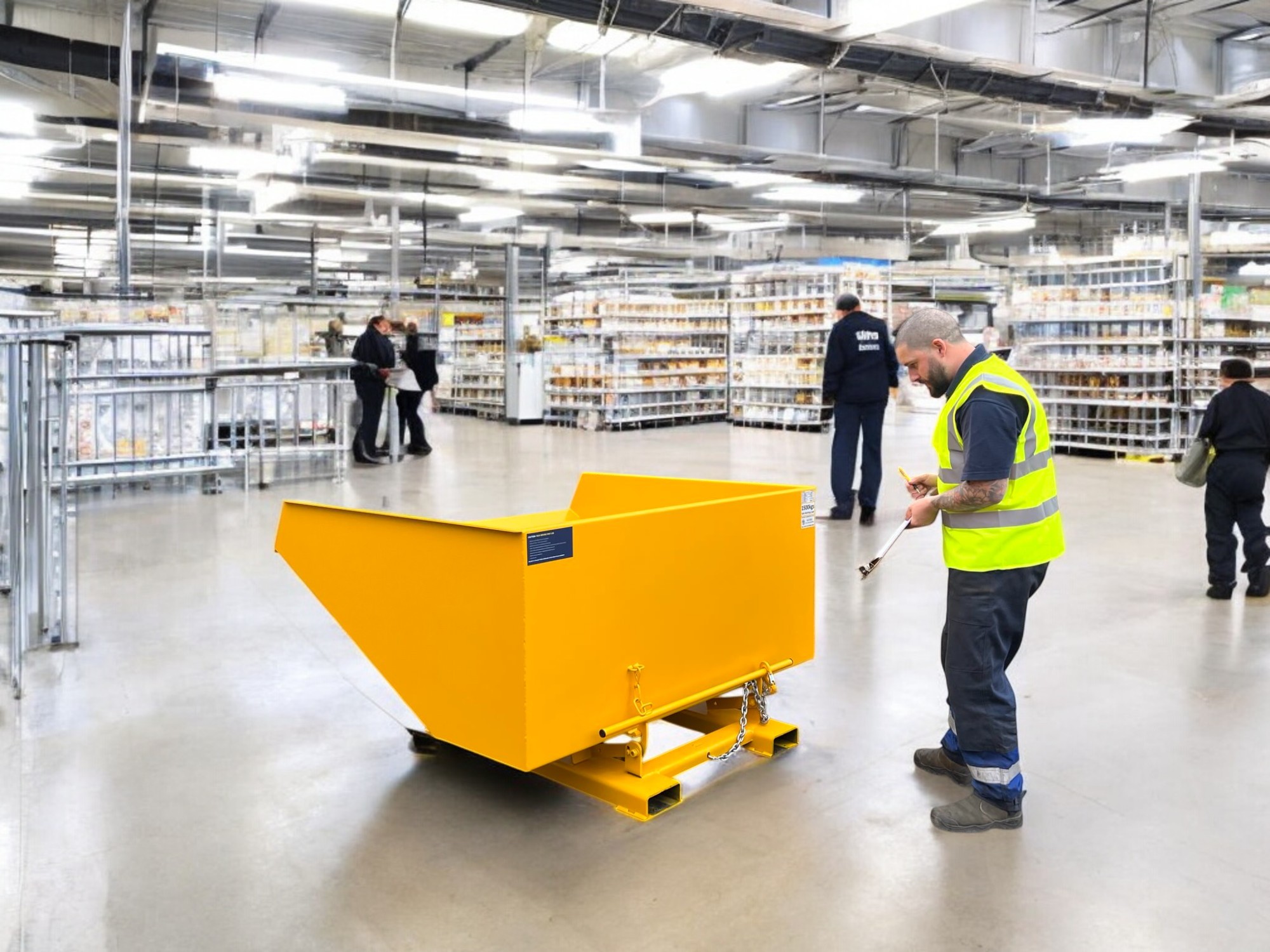 Aug 20th, 2025
Aug 20th, 2025
 9 mins
9 mins

In the frozen food industry, health and safety are paramount. From production to delivery, maintaining the integrity of chilled and frozen goods relies not only on accurate temperature control, but also on the efficiency, reliability, and safety of material handling systems.
BFFF member Contact Attachments, based in Newtown, Powys, understands the vital role its equipment plays in the cold chain process – and that just as crucial as having the right tool for the job, is ensuring that it’s used correctly and safely.
In this article, Tom Pelling, Operations Manager at Contact Attachments, explores how forklifts and attachments contribute to health and safety in frozen environments, the legal responsibilities surrounding equipment upkeep, and why continuous training is key to accident prevention.
Forklifts and Attachments in Frozen Environments: More Than Just Moving Pallets
Operating in sub-zero environments brings its own unique set of challenges. Forklifts in frozen food warehouses must be specially adapted to work efficiently in cold, often damp conditions, where condensation, ice build-up, and visibility issues are common. Stainless steel or galvanised attachments are often chosen for such environments due to their corrosion resistance, which is an important factor in hygiene-sensitive frozen food facilities.
The type of attachment plays a central role in optimising operations and safety in these demanding settings too. Whether it’s slip sheet attachments that reduce the need for wooden pallets (minimising splinters and contamination risk), pallet puller attachments to eliminate the need for workers to manually handle heavy or awkward loads, or drum rotators for emptying contents safely and with ease – these tools increase productivity without compromising safety.
Legal Responsibility: Thorough Examinations Are Not Optional
When it comes to forklift equipment safety, it’s important to recognise that an attachment is not just an accessory – it becomes part of the lifting equipment. Many businesses do not realise that under the Lifting Operations and Lifting Equipment Regulations (LOLER) 1998, forklift attachments (unless permanently affixed to the forklift truck) must undergo a Thorough Examination every six months.
Any new attachment must be:
- Certified for use with the specific forklift,
- Included in the Thorough Examination, and
- Assessed for its impact on the forklift’s rated capacity and stability.
In the context of a frozen food warehouse, where extreme temperatures and frequent use can accelerate wear and tear, Thorough Examinations are essential for identifying potential failures before they cause accidents.
As a CFTS accredited company with decades of experience, Contact Attachments are able to carry out certified Thorough Examination inspections on all your forklift attachments and material handling products – whether manufactured by Contact Attachments or not – to ensure you remain compliant with the latest health and safety requirements. We can collect, inspect, remedy if required, and redeliver your attachment in a fully compliant state – with an up to date Thorough Examination Certificate and Report. And as we aim to carry out Thorough Examinations within 24 hours of receipt of the attachments, downtime is kept to a minimum too.
People Power: Why Training is the Cornerstone of Safety
Even well-maintained equipment can quickly become a safety hazard if it is used incorrectly, so adequate training is just as important as the equipment itself.
Training should cover:
- How each attachment affects the forklift’s handling and load stability
- Safe operational limits, such as load capacity and lifting height
- Attachment installation and removal procedures, and
- Emergency protocols in case of malfunction
In cold storage environments, where visibility may be reduced due to fogging and condensation, and floors are often slippery, this training becomes even more critical. Operators must be trained to anticipate these hazards and adapt their behaviour accordingly. And refresher training and hands-on demonstrations should be part of a continuous improvement culture, not just a one-time event.
Not only does providing adequate training ensure compliance with HSE guidelines, but it also empowers operators to take ownership of their own safety and that of their colleagues. At Contact Attachments, our team is fully certified and experienced at providing product training on a wide range of forklifts and attachments, regardless of the manufacturer. Our ‘on-site’ service is delivered to a maximum of three trainees per 90 minute session – ensuring full one-to-one attention within a short, focused, and thorough (yet easily digestible) training period.
Conclusion: A Culture of Safety
At the heart of every safe and efficient frozen food operation is a team of people who are properly equipped and fully-trained, supported by specialist machinery that is regularly inspected and maintained.
As the quality leader in forklift attachments we don’t just provide products, we provide an ongoing partnership – from helping customers to select the right attachments for their individual needs, ensuring compatibility and compliance, to offering practical training, and guidance and assistance on routine maintenance.
Whilst the cold chain may be demanding, when material handling is done right, it can significantly reduce the risk of injury, equipment damage, and product loss – ultimately protecting both people and profits as one of the safest links in the logistics network.
For more information on our range of cold-store-compatible forklift attachments or for a friendly no-obligation chat about our Thorough Examination service or dedicated training support packages, visit www.forklift-attachments.co.uk or contact our team directly on 01686 611200.



















